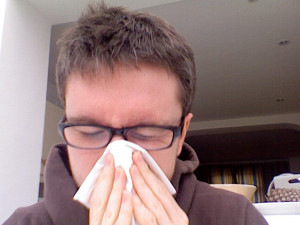The Minnesota Department of Health (MDH) has confirmed it identified a case of respiratory illness due to Enterovirus D-68 (EV-D68) in a child who was hospitalized with acute respiratory symptoms. The child was released from a Twin Cities hospital and is now recovering at home.
The MDH Public Health Laboratory confirmed a case of EV-D68 Tuesday night in a specimen submitted by a hospital participating in Minnesota’s severe acute respiratory infections surveillance system. EV-D68 is the same strain of enterovirus that has been associated with recent increases in severe respiratory illnesses in children in a number of states and Canada. Often, but not always, these children have a history of asthma.
 Over the past two weeks, through multiple surveillance systems, MDH has detected other types of enteroviruses, and other respiratory viruses including rhinovirus, adenovirus and respiratory syncytial virus (RSV). The finding of EV-D68 confirms suspicions that EV-D68 is circulating in Minnesota and may be responsible for some of the recent increases in pediatric admissions for severe respiratory illnesses in several Minnesota hospitals.
Over the past two weeks, through multiple surveillance systems, MDH has detected other types of enteroviruses, and other respiratory viruses including rhinovirus, adenovirus and respiratory syncytial virus (RSV). The finding of EV-D68 confirms suspicions that EV-D68 is circulating in Minnesota and may be responsible for some of the recent increases in pediatric admissions for severe respiratory illnesses in several Minnesota hospitals.
“This highlights the importance of having a surveillance system in place which can provide information on which respiratory viruses are circulating in the state and help us understand the burden caused by a particular virus,” said State Epidemiologist Dr. Ruth Lynfield.
While enteroviruses can occur all year long, Lynfield said Minnesota typically sees an increase in enteroviruses in late summer and early fall. CDC estimates that 10-15 million enterovirus infections occur each year in the United States, most frequently in children. There are over 100 types of enteroviruses, and certain enterovirus types tend to be more frequently associated with certain illnesses. These illnesses can include respiratory symptoms (as being observed currently with EV-D68), fever with or without other symptoms, rash, gastrointestinal symptoms, neurological symptoms, heart symptoms, and conjunctivitis. Illnesses range from mild to severe.
EV-D68 was first identified in California in 1962. Because typing of enteroviruses is not routinely done in clinical laboratories, the frequency of infection by this specific type of entrovirus is unclear. Minnesota’s Public Health Lab has typed isolates of enterovirus for more than 20 years submitted through a special surveillance system, and has detected occasional isolates of Enterovirus-68 in prior years..
Enteroviruses can be spread by close contact with an infected person who may cough or sneeze on you and by touching objects or surfaces that have the virus on them and then touching your eyes, nose or mouth. Enteroviruses can also be spread through the fecal-oral route.
Respiratory illnesses can be caused by many different viruses and bacteria, and can have similar symptoms. Not all respiratory illnesses occurring now are due to Enterovirus-D68. Anyone with respiratory illness should contact their doctor if they are having difficulty breathing, or if their symptoms are getting worse.
There is no specific treatment for people with respiratory illness caused by enteroviruses. For mild respiratory illness, you can help relieve symptoms by taking over-the-counter medications for pain and fever. Aspirin should not be given to children. Some people with severe respiratory illness may need to be hospitalized. There are no antiviral medications currently available for people who become infected with Enterovirus-D68.
You can help protect yourself and others from respiratory illnesses by following these steps:
-
People who are sick with respiratory illness should limit their contact with others, cover their coughs and sneezes, and wash their hands frequently.
-
Wash hands often with soap and water for 20 seconds, especially after blowing your nose, coughing or sneezing, going to the bathroom or changing diapers.
-
Avoid touching eyes, nose and mouth.
-
Avoid kissing, hugging, and sharing cups or eating utensils with people who are sick.
-
Disinfect frequently touched surfaces, such as toys and doorknobs, especially if someone is sick.
- Take advantage of available vaccines, like influenza vaccine and pneumococcal vaccine.